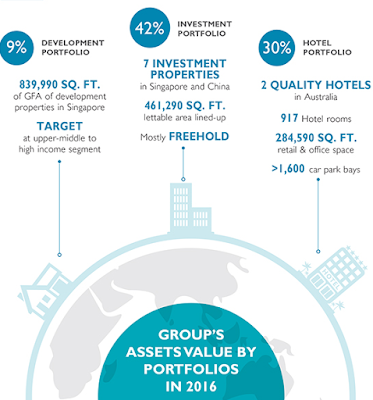Oh, no! Another short blog?
Although I like undervalued investments, there is always the possibility of such investments staying undervalued for an extended period of time.
Some readers might have noticed that this is usually the case with property developers.
My preference is, therefore, to invest in property developers that are able and have shown a willingness to reward shareholders with meaningful dividends.
The wait can be a long one and being paid while we wait makes it more affordable for most people.
Although individually my investments in property developers are definitely not big enough to be in my list of largest investments, collectively, they could be.
In late 2019, I shared the list of property developers I was invested in.
They were the following:
1. Guocoland
2. Ho Bee Land
3. Hock Lian Seng
4. OUE
5. Perennial Holdings
6. Tuan Sing
7. Wing Tai
The list has shrunk as I let go of my positions in Tuan Sing, Perennial Holdings and OUE.
Tuan Sing was sold a few years ago when its share price rose to what I felt was fair value.
Perennial Holdings was delisted and I made a small gain in the process a few years ago.
OUE was a very small investment in the list and it wasn't very impactful.
So, I let go of that investment and used the money to increase my exposure to our local banks instead.
For a while now, I have been left with the following property developers in my portfolio:
1. Guocoland
2. Ho Bee Land
3. Hock Lian Seng
4. Wing Tai
With interest rates much higher today, property developers are unlikely to do much better than before.
However, these four companies are undervalued and they should still be able do well enough to pay meaningful dividends.
I like being paid while I wait.
For example, Wing Tai Holdings which is trading at close to 70% discount to NAV is offering a 4% dividend yield.
It is like Warren Buffett buying socks at a huge discount but it doesn't stop there because the socks, in this case, pay us for wearing them!
Having said this, I am not increasing exposure to property developers although I am more than comfortable to hold on to my existing investments.
Related posts:
1. Perennial Holdings stock spikes!
2. Invested in Tuan Sing Holdings.
3. Hock Lian Seng should be 69c.
Recently published:
Fixed income strategy. My plan.





















